The Swytch Bike electric conversion kit is a great and relatively simple way to turn your bicycle into an e-bike, even if you’re not used to bike maintenance.
The appeal of the electric bike is to have power-assisted cycling, allowing you to travel further and faster than under your own steam. Hills theoretically become easy to climb with one, saving you from the shame of dismounting and pushing the vehicle.
Becoming an owner of an electric bike does introduce its own problems, though. For a start, if you want an e-bike that looks close to a traditional human-powered bicycle, such as the Urtopia Carbon 1s, you’re going to be paying a lot of money for the privilege.
There are cheaper options out on the market, but there’s a good chance that the cheaper you go, the likelier it becomes that there are obvious elements added to the bike, like the motor or battery, and with minimal attempts to hide them in the bike’s design.
Not to mention that you could end up with an e-bike that is the right price for you, but the design or functionality doesn’t quite gel. An uncomfortable bike isn’t good to ride, electric-assisted or not.
If you already have a bicycle that you like, then there’s the possibility of using a conversion kit. Rather than replace your bike, you could instead add the parts to turn it into an e-bike.
However, a quick glance at various online retailers selling such kits will show packages that will leave you with a really obvious battery and motor bolted onto your two-wheeler. Even if you do manage to luck out and get a nice kit, it’ll also tend to be quite a heavy addition to the bike itself.
This is where Swytch steps in.
What is Swytch Bike?
The UK-based Swytch created a crowd-funded kit in early 2017 that aimed to make it as easy as possible for cyclists to convert their bicycles into e-bikes. The idea was to make it as small and as light as possible, with it able to take up as little space on the bicycle itself.
It was also intended to be easy to install and maintain, and for users to recharge the simple-to-remove battery whenever they want.
The result is a conversion kit where the front wheel of the bicycle gains a motor in a somewhat sizable hub. It’s connected to a battery that’s fitted in where you may place a basket, which in turn gets signals from a pedal sensor.
In theory, it’s supposed to be a simple kit to acquire, install, and use. In practice, it gets pretty close to the company’s intentions.
Swytch Electric Bike Conversion Kit – The Package
When you order the Swytch Bike kit, you have a few questions to answer. Aside from obvious stuff like what color of kit you want and battery size, you’re also asked various details about the bike itself.
Since Swytch is making a bespoke wheel with a 250W geared hub motor inside of it, the company needs to know information about your existing front wheel. That does mean that you won’t be able to move the entire kit from one bicycle to another unless they’re using practically identical wheels, but that’s not really going to be an issue for most people.
After ordering, you receive a package containing your custom motor-holding wheel, a mount and bracket for holding the battery and connecting everything together, the battery itself, a pedal sensor, a display for managing the system, and magnetic disks and other accessories for fitting the kit to your bicycle.
Swytch Electric Bike Conversion Kit – Installation
You get a manual to follow for installation, but there are also some handy videos to follow for the installation process itself if you want a more visual guide. A small selection of tools are required, though mainly for dealing with the wheel.
The meat of the installation process broadly consists of removing the front wheel from the bicycle, either moving the tyre and inner tube from the original wheel to the supplied wheel or buying and installing new ones, and reattaching the wheel.
For someone not mechanically inclined, the process of moving the tyre and inner tube over can take quite a bit of effort. It’s safe to say that you could take the Swytch wheel to a bicycle shop and have them install the tyre for you, as the rest of the setup process is much easier.
It also relies on very basic tools, so if you have screwdrivers and allen keys, you’re golden. Swytch also provides a number of zip ties to fasten and tidy up the cables, too.
Once the wheel is on, you then have to attach the mount and display to the handlebars, fit the magnetic discs to the pedal, place the pedal sensor close enough to the discs to sense its movement, and hook all the cables together.
Even the cable attachment process is straightforward, with color coding used alongside arrows that need to be pushed together to make a sufficient connection.
After performing a few checks and applying a few well-placed zip ties to keep the cables in check, you’re ready to take to the open road.
Swytch Electric Bike Conversion Kit – Styling
Once you’ve installed the conversion kit to the bike, you’re left with a setup that doesn’t really look like much has actually changed to the vehicle at all. There are a few changes, but not a massive amount of add-ons that screams out it’s an electric-powered bicycle from a long range.
For a start, the in-hub motor design is compact relative to the overall size of the wheel, so it’s not visually consuming much space on the wheel itself. The small amount of cable from the side that snakes up to the handlebars is a slight clue that there’s something different about it all.
Another element is the battery, which fits into the front of the handlebars using a quick-release clamp-style system where you may normally place a basket. From straight ahead, the Swytch branding is a giveaway that it’s a power pack, but otherwise people may just wonder why someone put a power bank on the front of their bike.
At approximately nine inches across, four inches tall, and up to an inch and a half thick, depending on capacity, the battery certainly has the appearance of a power bank, even with its rubberized surrounding. At 700 grams (24.7 ounces), Swytch also claims it to be the smallest and lightest e-bike battery you can
Key here is that it is a compact battery that doesn’t look like some of the larger ones you may find in after-market conversion kits.
Of course, if you find the handlebars to be a little cluttered, there are accessories you can pick up to change the battery’s location, such as where the bottle cage is fitted, or tucked in under the seat post, for example.
The Power Pack mount is fairly neat, but the cabling can be a problem for people wanting a perfectly neat solution. You get more than enough cable to run the various components around the bicycle frame, but there may be a bit too much for some frames.
This does result in a bunching-up of wiring underneath the mount, which will require some skillful zip-tie usage to keep it clean. It isn’t helped that there are extra connection points dangling down for other accessories, such as brake sensors or a throttle, but they are mercifully short and fairly unobtrusive.
Surrounding the pedal on one side, the magnetic discs and electrical sensor are utilitarian in their approach, but aren’t too much of an eyesore. When riding, the user’s feet will be shielding the components from view anyway.
The display, attached to the handlebars, is the main controller for the Swytch Bike system. The base display tells you how much power is left in the battery, as well as letting users switch the amount of assistance the motor provides while on rides.
Two other displays are also available, with the LED display showing the speed and offering configurable settings. The OLED display, which was supplied for the review, goes further by adding trip data and acting as a basic cycling computer for the user.
While it would be handy to have these connect up to an iPhone in some way, such as for logging workouts and the amount of assistance the motor provides, the system is closed to external inputs and outputs, aside from you pressing buttons on the display.
Swytch Electric Bike Conversion Kit – In Use
Heading onto the open road and with a great build quality and a reasonably simple installation process, there were high expectations for the Swytch Bike kit.
The motorized wheel has a claimed 40nm of torque, with a top speed of 32kph or 20mph possible when using it in tandem with cycling. For some regions, the top speed is restricted down to 25kph or 15.5mph to abide by electric bike laws, but that doesn’t stop the rider from going faster under their own steam.
Once you clamp the battery into the holder, you press a button on the display to turn the system on, and then press one of the up-down buttons to change the power assistance level.
The display doesn’t allow you to control the speed with the five power levels, but instead, each tier relates to how much assistance you will receive as you turn the pedals. At higher levels, the level of assistance increases too.
Unless local laws allows the installation of a throttle, you must keep pedaling to receive the power assist, otherwise it ceases and you end up coasting.
Also, the pedal sensor is set up so that it only triggers if you pedal forward, and not when you pedal backward. This does mean you can’t just use it like a scooter without pedaling at all, but disabling the chain does allow it to work without human muscle assistance.
At 250W and with 40nm of torque, the key figures for the motor don’t sound enthralling, but it does more than enough to accomplish the job for most users.
For this review, it was installed onto a heavy mountain bike, used by a husky and quite unfit fellow, in a city with lots of varied level terrain. This is quite an unfair set of circumstances for testing purposes, and certainly put the Swytch system under stress, but outside of some gallingly steep hills, it was able to make the ascents.
Under more ideal conditions, such as a lighter bike and with a slimmer and fitter rider, it could probably handle the steeper areas of the city better.
At times, when going from the flat to a small hill, when the rider may normally change gears for the ascent, Swytch offers the possibility of simply bumping up the power assist level to go up the hill without that gear change. On the flat, it’s almost like an acceleration boost to get you to high speeds quicker, without expending too much energy.
Swytch Electric Bike Conversion Kit – Power Packs
Swytch offers two power pack capacities, with the Air’s 90Wh said to offer a range of 15km (9.3 miles), while the Max supplied for review has a 180Wh capacity and a 30km (18.6 miles) range before recharging.
Obviously, these ranges vary depending on how much powered assistance is provided to the user. Based on our usage, it seems that the figures are reasonably accurate, but you will probably want to use the lower power assistance levels to reach them.
There’s also the possibility of turning off Swytch at times when it’s not needed, like flat roads, and saving it for inclines.
To recharge the Power Packs, Swytch supplies its own charger, since its connections aren’t standard ones like USB-C or a barrel. The standard 2A charger can recharge the Air Power Pack in about an hour, with the Max reaching capacity in about 2.5 hours.
A 3A Fast Charger is available as an upgrade. Working only with the Max version, it can cut the charging time down to 1.5 hours.
The chargers themselves are about a third of the size of the Power Pack, so they aren’t what you would call small, but not too inconvenient either. If you’re on a long cycling trip and expect to recharge the Power Pack at some point, it’s going to consume some precious space in the luggage, though it will be a necessity.
It would’ve been nice if it had a USB-C connection for charging, if only to cut down on the number of chargers a cyclist may need to pack and carry around. Since it is basically a portable battery, it also could’ve been useful for it to have ways to power other devices like a normal power bank, but it’s not made for that purpose.
Swytch Electric Bike Conversion Kit – Pricing and Deliveries
Buying the Swytch Bike is somewhat complex, as you can’t buy a readily-available kit due to the fabrication of a wheel for your particular bike. There’s also the issue of availability, as since the company relies on a drop-based system, you have to sign up and wait for an email to be included in the next wave of releases.
When you get that email, you have to go through the full buying process, which entails telling the company about your bike’s specifications and what package you ultimately want. Part of this complexity also applies to the price.
The cost of the kit can be as low as $499 for the version with the Air power pack, rising to $649 for the Max version, or as an upgrade kit from an earlier version of the system, $324.
That “can be as low as” is the tricky part, as those values are based on a discount for being prepared to wait longer. The full prices of each kit are $1,199, $1,599, and $799 respectively, and that’s based on getting the kit as quickly as Swytch can ship it.
Since Swytch releases its kits in batches, the company offers a handsome discount if you’re OK with waiting a while for the kit and for others to get it first. This may add a few months to the wait for the package to actually be sent out.
A few month’s wait may be worthwhile for many users, especially with a sufficient discount attached to it.
A better e-bike converter
The Swytch Bike system has the ultimate aim of making it as easy as possible for cyclists to add electric assistance to their bike. On many levels, Swytch has accomplished just that.
Swytch has created something that is easy to set up and use with most bicycles, and works in a user-friendly manner while you’re actually riding it. If you’re handing the bike over to someone else for a quick test ride, they only need minimal instruction before they can get going.
It’s also a pretty good-looking system, with fewer of the obvious elements of other more DIY e-bike conversion kits. The in-wheel-hub motor basically leaves the Swytch-branded power pack on the handlebars as the only real clue that there’s something unusual about the foot-powered vehicle.
The system isn’t necessarily the cheapest option, either, as you can certainly acquire the previously mentioned kits for less money, but you’re not going to get the styling or ease of use that Swytch provides here. Especially if you’re prepared to wait a while for your kit to arrive.
Likewise, you could buy an electric bike for the full-price cost of the kit, and potentially a model that hides the powered factor a bit more.
Buying Swytch’s kit isn’t necessarily for everyone, especially those who want an electric bike experience without needing to do any manual labor. For those who do want an electric bike, and happen to have a bicycle they already enjoy and don’t want to replace, the Swytch Bike conversion kit is a fairly drama-free way to add the “e-” to the bike you’ve already got.
Swytch Electric Bike Conversion Kit – Pros
- Easy to set up
- User-friendly while riding
- Fairly discreet in appearance
Swytch Electric Bike Conversion Kit – Cons
- Bunching of wires
- Price, unless you are prepared to wait
- Slow delivery times
Rating: 4 out of 5
Where to buy the Swytch Electric Bike Conversion Kit
The Swytch Electric Bike Conversion Kit is available from Swytch’s website, sold in batches to customers who sign up in advance.


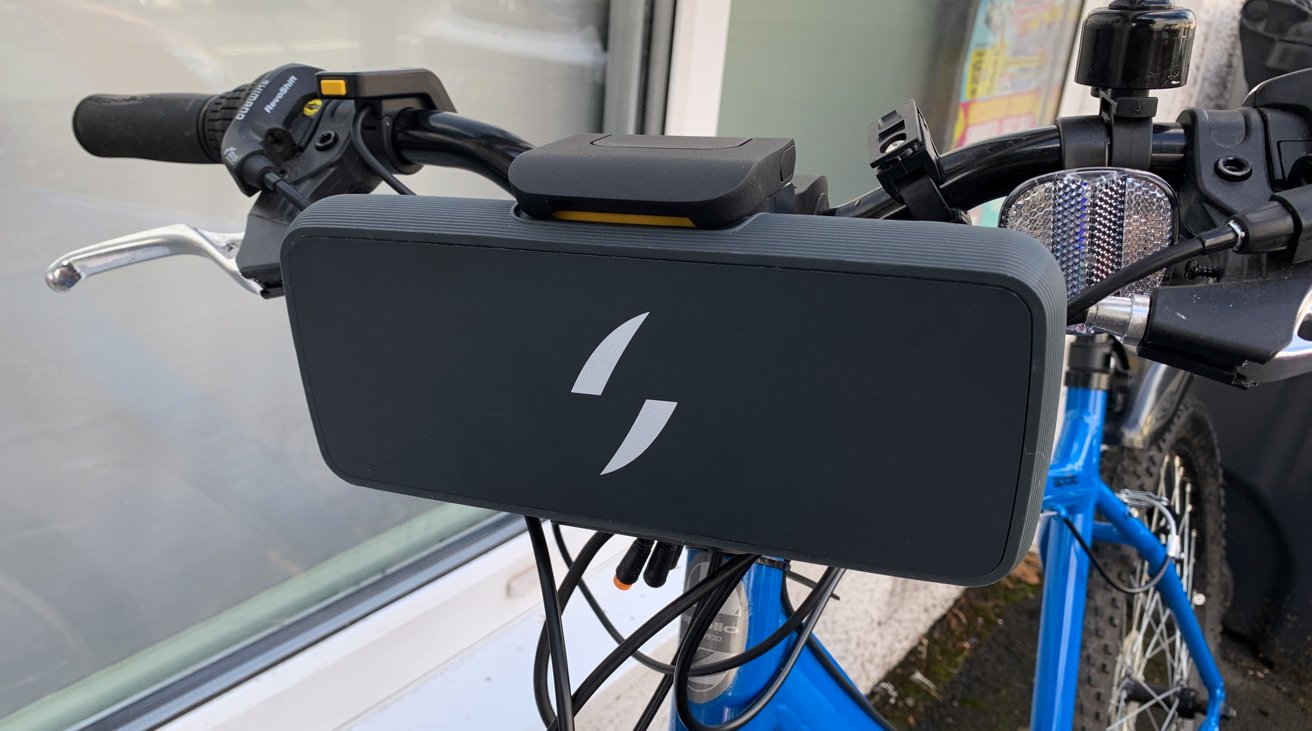
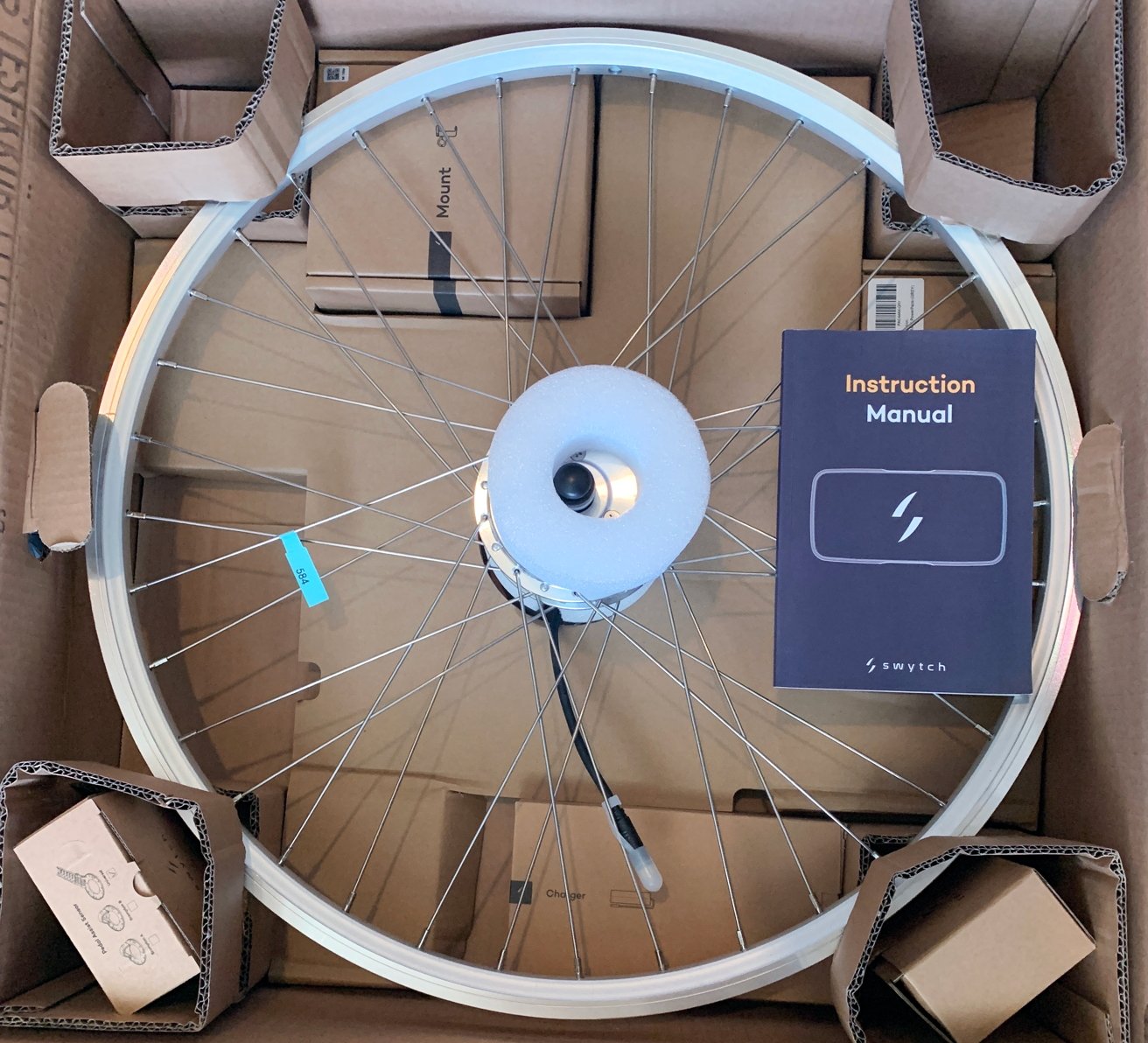
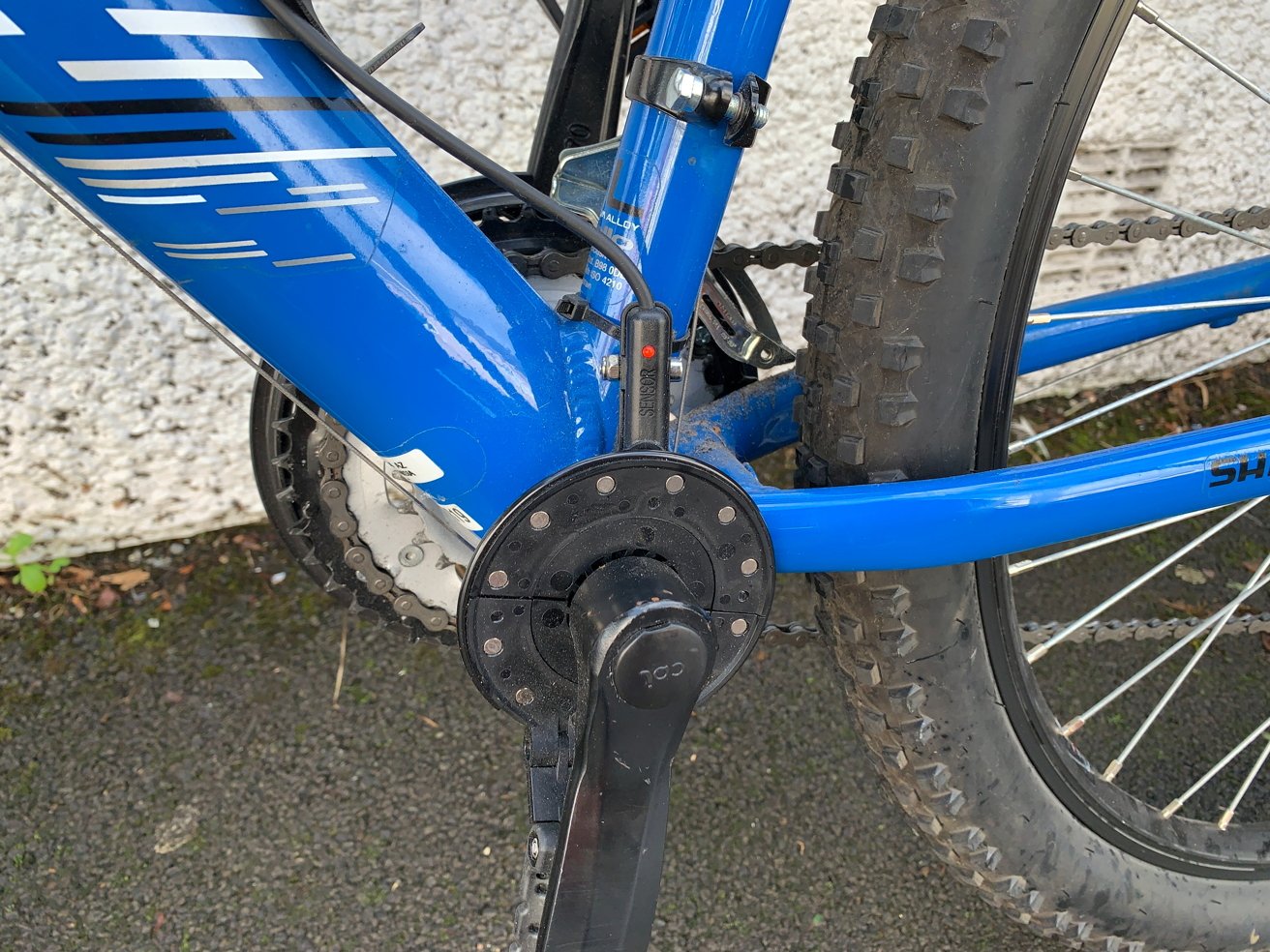
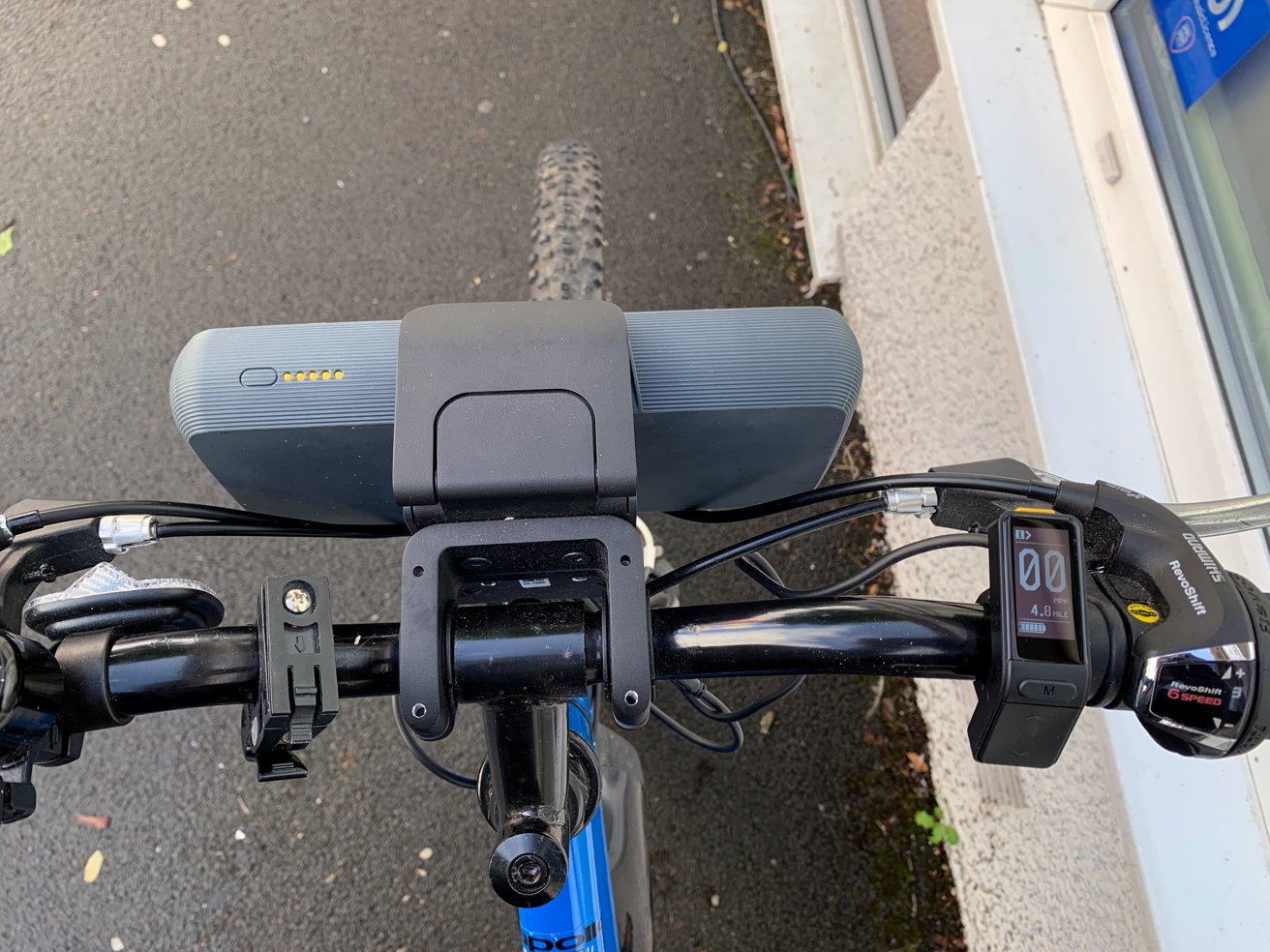
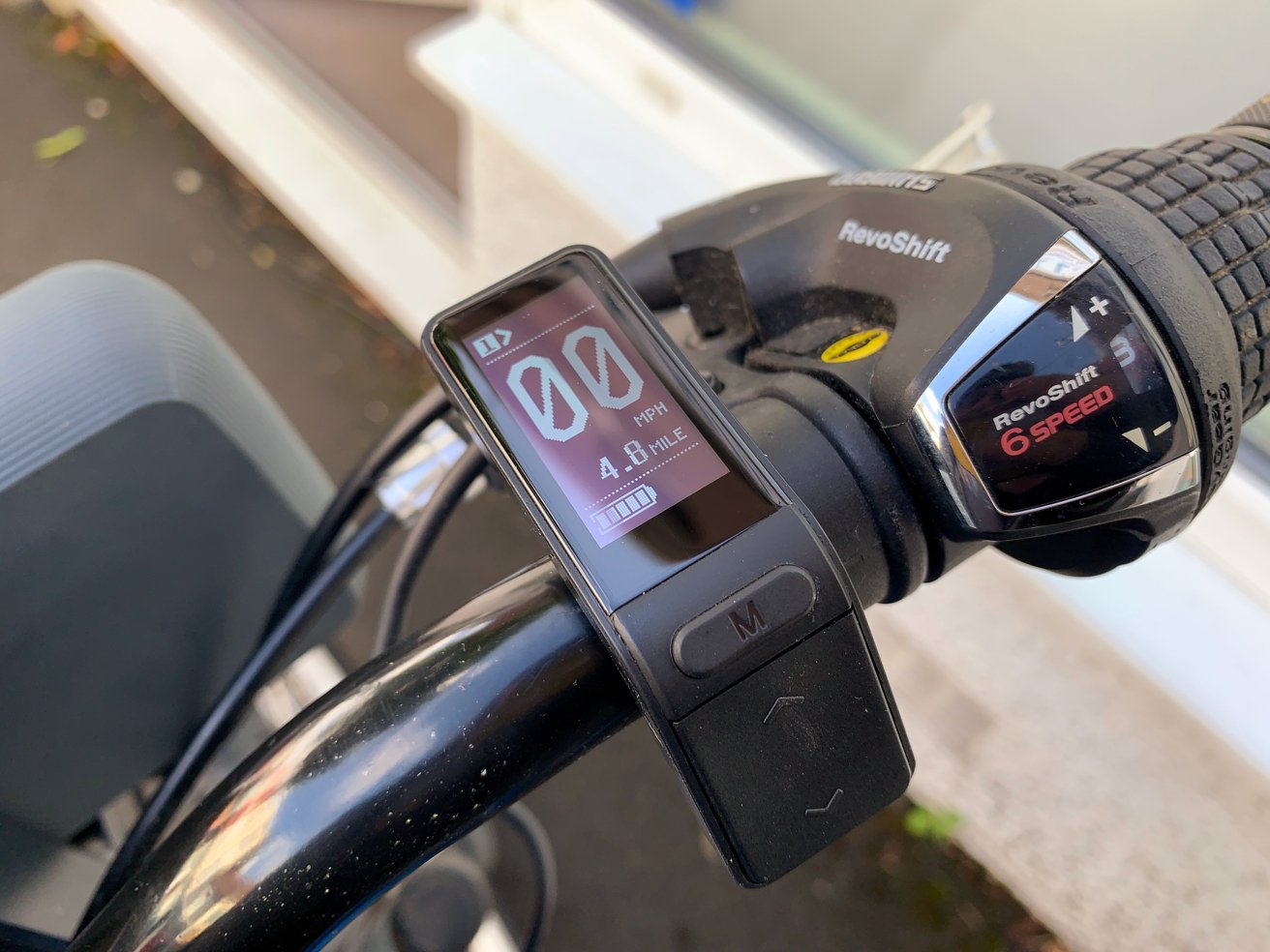
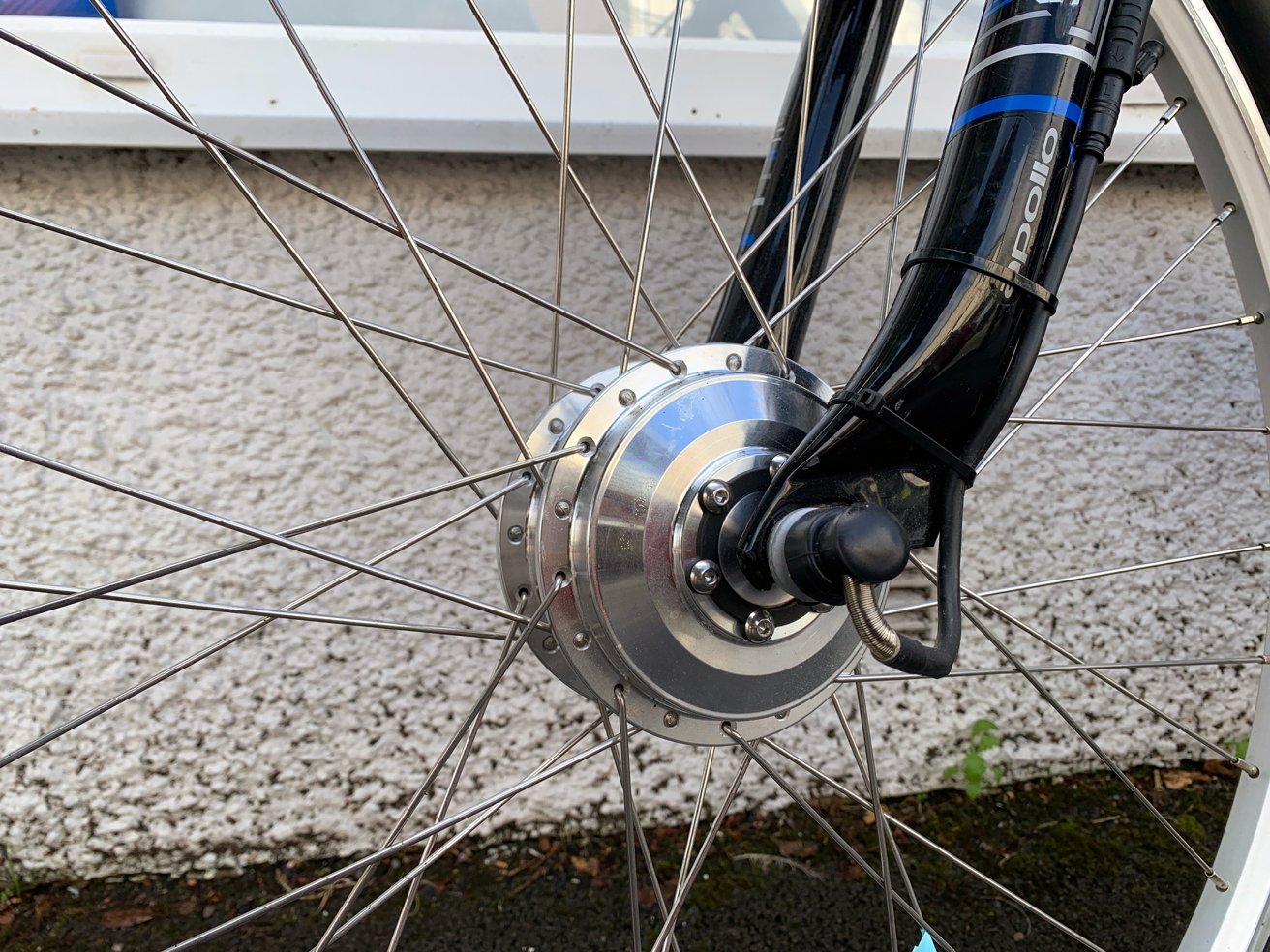
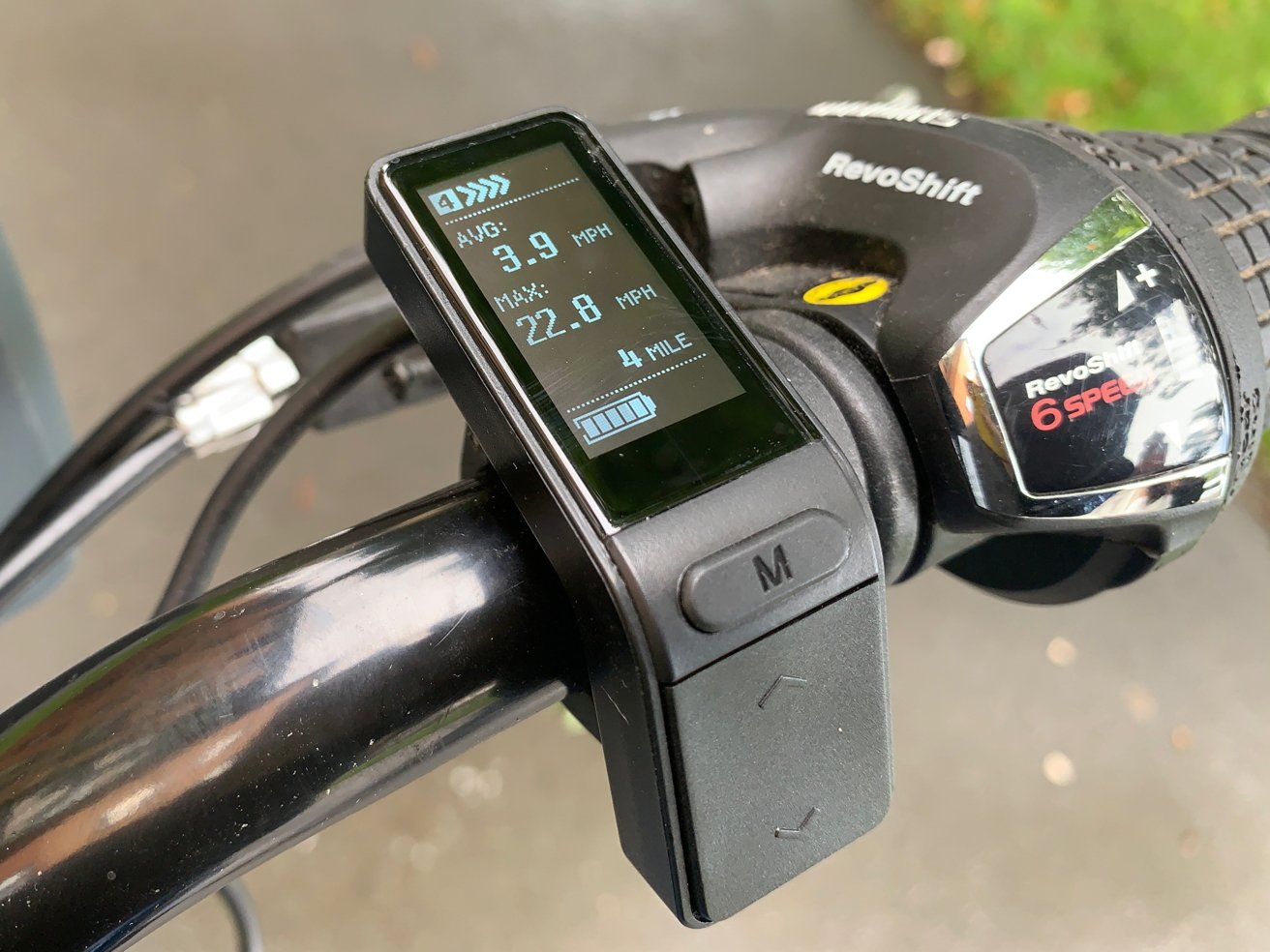
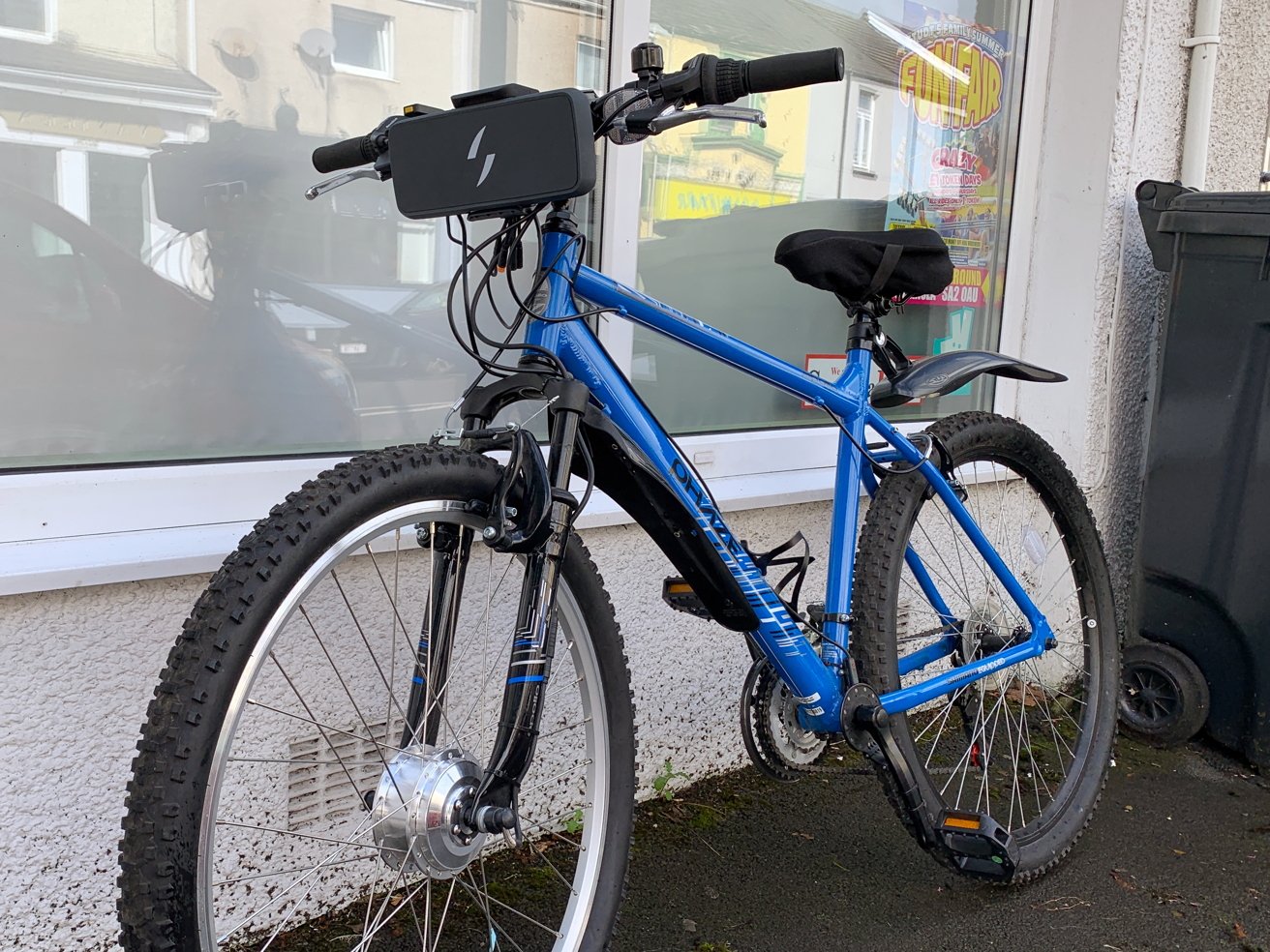


![Is it time for some truly colorful MacBook Air models? [Poll]](https://techtelegraph.co.uk/wp-content/uploads/2025/03/Is-it-time-for-some-truly-colorful-MacBook-Air-models-218x150.jpg)